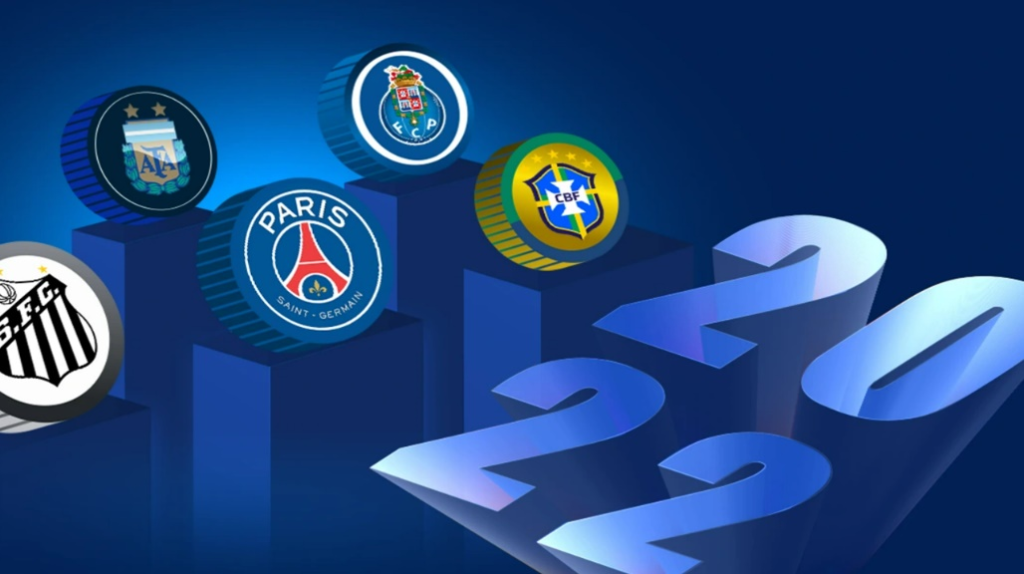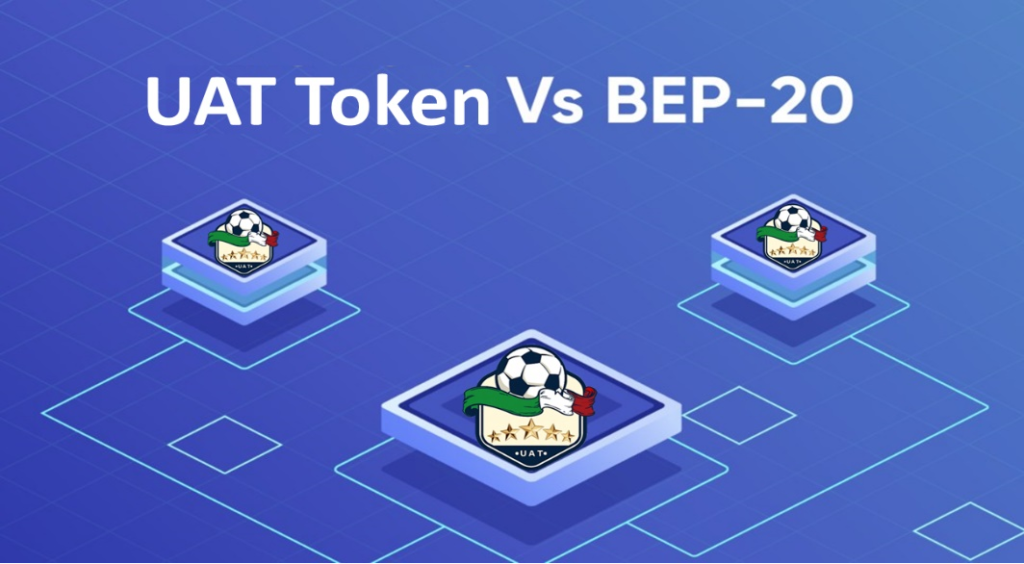
INTRODUCTION
Blockchain Technology Introduction
Blockchain and football
Blockchains are a public and accessible tool to collect transaction lists. Their most well-known implementation is for digital currencies like Bitcoin, the first to exploit blockchain technology. Yet, Blockchain technology does not confine it to financial transactions; The masses can utilize it for various other reasons that will assuredly shape the world, including football.

In recent years, “virtual currency” has gripped worldwide sports. These trends, which have mostly gone unnoticed by scholars and journalists, create uncertainty about what lures football clubs worldwide to cryptocurrencies. We can now construct digital artifacts that will live up to the hype of blockchain technology.
Moments, achievements, and emotions can now be immortalized on a blockchain and, therefore, live on perpetually. The advent of fan engagement tokens was one of the fascinating inventions to arise from the convergence of football and technology.
The role of blockchain in today’s football industry
Employers would use blockchain-based technology to build a smart path for players. In sports, Clubs can use blockchain to monitor athletes from their beginnings in a youth academy to the Champions League stadia. Likewise, collecting a player’s transfer record on the blockchain allows teams to track back to when they first picked up football – from youth teams to world-class teams. As a result, it would be difficult for clubs, managers, or other external stakeholders to exploit youth prospects or change players’ transfer records.
A blockchain interface enables sports fans and club supporters around the globe to buy tokens from one’s favorite clubs. Mostly, in a swap for specific bonus features monetized or exchanged among platform users. Furthermore, clubs Juventus FC and Paris St-Germain were among the first to grasp blockchain technology when they confirmed their alliance with Socios.com in 2018. FC Barcelona, Athletico de Madrid, Galatasaray, AC Roma, and West Ham United have all been engaged with Socios after following in their footsteps.
Additionally, these clubs might even store players’ medical data on the blockchain. It doesn’t only mean that a player’s comprehensive clinical record would be preserved and unmodified just on the blockchain, but it would also enhance visibility. More critically, each club’s medical team will be in a more vital place to cure, endure, or anticipate accidents that may arise in their football squad. Track former given medication and its impact on the individual, surgeries conducted, injuries, the emergence of complaints, and maintaining digital health records are just a few instances.
In a more development-oriented vein, the bit academy platform enables investors to purchase players’ tokens in African youth academies. Investors can observe their players’ development and, depending on just that, enter into contractual arrangements with football teams to shift the tokens they own in a player through the platform’s marketplace.
The Combination Of Smart Contract And Football
Smart contracts and football clubs
Other than tokens, smart contracts are perfect for self-executing transactions that would otherwise require human authorization, leading to disagreements between the parties.
Contracts involving clubs and players for incentive payments when players reach a certain number of goals scored in a season or number of matches played are simple examples. Such terms in player contracts frequently trigger bonuses, renewals, and other incentive-based compensation.

A few clubs have implemented intelligent contracts and cryptocurrencies into their business structures. A Turkish team became the first in sports to buy a player with cryptocurrency in early 2018.
It is the new norm in which football clubs use bitcoin for player transfers and smart contracts to handle their ties with athletes. Going to follow that, a Gibraltar-based club made international headlines once.
Smart contracts and athletes
When digital contracts became popular, athletes were some of the first to take advantage of them. They could now control their likeness and be paid automatically when it was used in an ad or game. This allowed them to make money even when they weren’t playing.
One particular athlete, Magic Johnson, decided to take things a step further. He issued a limited number of digital collectibles of his best plays. Fans could buy these tokens and share in his success. They could also invest in his funding journey and reap returns when he hits the big time.
With Crypto.com as an Official Sponsor, we can be sure that blockchain technology and cryptocurrencies will play a significant role in the running of the event.
What Is Fan Token?
Definition
This new era of sports fandom brought a new way to collect and trade memorabilia. Fans could now own a piece of their favorite team – not just figuratively, but literally. And as the value of these fan tokens continued to rise, so did the excitement around them.
Socios, one such platform, is tokenizing this emotional connection and a fan’s influence over their club. Ownership of Fan Tokens does not represent equity or shares in football clubs, and equally should not necessarily be viewed as an investment plan, but ownership does offer an entirely new way for fans to engage with their club or clubs. Moreover, ownership offers a place for a fan’s voice to be heard, and a place where their passion will be rewarded. Ultimately, owning Fan Tokens gives fans far more interaction, a greater voice, as well as more power and influence over the clubs they love, than being just being a shareholder.”

Chiliz ($CHZ), the cryptocurrency and Socios platform, offers fan engagement tokens focused on sports and e-sports. Socios gives fans the ability to vote on decisions such as whom the football club plays during “friendlies”. The voting power on the Socios platform does not extend to institutional or corporate governance decisions which, again, could have TPO implications.
Paris Saint-Germain and Juventus became the first two major football clubs to partner with Socios.com. The fan tokens $PSG and $JUV are listed on the world’s leading exchanges Binance, Paribu and Upbit. Many more leading sporting organizations have partnered with Chiliz to date, including FC Barcelona, Atlético de Madrid, AS Roma and Istanbul Başakşehir, as well as e-sports organizations such as Heretics, NAVI, Alliance and OG. Chiliz has also entered into agreements with the UFC and MMA.
The Use Cases Of Blockchain In Football

As blockchain technology has started to find its ground in the sports industry, new revenue streams have opened up. From fan tokens and digital collectibles to fan loyalty and engagement platforms. This allows for a younger, digital-first fanbase to grow. In time, this leads to increased revenue which is something that sports clubs and companies in the sports industry don’t want to miss out.
Here are some of the most popular use cases of blockchain in sports.
Fan tokens
The reason behind the exploding popularity of fan tokens is their ability to create more revenue streams and increase engagement between fans and sports clubs. Usually, clubs and sports companies enable users to buy tokens with fiat currencies.
This will still be a crypto transaction, but in the background, those fiat currencies need to be converted into cryptocurrencies and then exchanged for merchandise, collectibles, or real-life experience like meeting a certain player.
Digital ecosystems are becoming increasingly important to sports clubs. Using blockchain in sports, they can reach an unimaginable number of fans and grow their international fanbases.
Digital collectibles
Digital collectibles are usually unique or created in limited quantities. Every digital collectible is, in fact, an NFT. Their uniqueness cannot be disputed, as every NFT can be verified by immutable blockchain technology.
Implementing blockchain in sports has endless potential. For example, fans will be able to buy unique limited-edition player cards and earn incentives for collecting entire collections. Such digital collectibles are already gaining popularity in the US, especially in the Major Baseball League. They have enabled fans to purchase digital collectibles, regardless of their location, at varying prices. This attracted numerous new fans, especially younger ones who are prone to using digital technology.
Loyalty and engagement platforms
By using loyalty and engagement platforms, sports clubs can harness the power of blockchain to create a sense of community and belonging among their fandom. They can reward their fans for interacting with their websites, creating content related to their club, sharing official posts, and much more.
These rewards are often in the form of fan tokens which fans can, in turn, use to buy merchandise, digital collectibles, and more.
Even though this is a great way to increase the ROI for their sponsors, the main benefit is increased engagement and an increased number of loyal club fans. Building an exclusive fan community is no small task, but doing it on a blockchain is something we couldn’t have imagined several years ago. Now, this is the standard.
Blockchain ticketing systems
Blockchain in sports has been used even in ticketing systems, which is no surprise. Using blockchain to transfer ticket ownership, store tickets, and purchase them has proven to be much safer than traditional methods. There is now no need for any intermediary or a centralized system.
And another benefit of blockchain ticketing systems is that – no one can falsely claim they purchased a ticket. With blockchain, the possibility of counterfeiting tickets is zero. And if a sports event is delayed or postponed, rescheduling and reusing the tickets will be much simpler for both organizers and fans.
The Future Of Cryptocurrency And Blockchain In football
Sports as an industry has realized the potential that cryptocurrencies and blockchain technologies can bring to further monetize fan engagement, attract sponsors and engage a global market in ways that were unimaginable decades ago. Passionate fans, each a citizen of digital technology, consume sports and related content beyond the actual duration of a match. Teams, clubs and sporting bodies are innovating to survive in the new digital age and meet fan expectations.

With the limitations brought upon the industry due to the COVID-19 pandemic, the sports industry has responded and devised new strategies to ensure clubs and fans remain connected in a socially distanced world. The industry has recognized that blockchain is capable of revolutionizing revenue streams and the fan experience through increased crypto-sponsorships, fan tokens, non-fungible tokens (“NFTs”) or even by entrance of blockchain providers into the market.
Partnerships and Sponsorships
Sponsorships have led to an increased awareness of cryptocurrencies amongst viewers and investors, at a time when crypto’s prevalence in the media and in everyday life is also on the rise.
Use of Cryptocurrency and Blockchain Technology in sport
Bitcoin and other cryptocurrencies are also being incorporated and accepted as methods of payment. Cryptocurrencies have been used to allow fans to purchase tickets and merchandise and for clubs to pay players’ salaries and transfer fees. Sports clubs and organizations have also benefitted from blockchain technologies by implementing more secure and transparent ticket exchange markets.
Fan Tokens and Crypto-assets
One of the most exciting innovations evolved at the intersection between sports and technology with the emergence of fan engagement tokens. A fan engagement token is a “fully fungible digital” utility token that gives fans access and influence over certain decisions made by their favorite sports team. The tokens provide its owner the right to vote on club matters such as kit designs, training ground names or picking charity initiatives. It is similar to a membership card providing fans with exclusive rewards, including special VIP access and treatment to a variety of events
Sports and Crypto-collectibles
Another “crypto” spin-off gaining momentum in sports is the NFT. NFTs represent a wide range of unique tangible and intangible items stored in digital wallets, from collectible sports cards to virtual real estate and even digital sneakers. An NFT is not interchangeable. Each NFT represents a unique digital item. The market for trading cards and collectibles is a multi-million-dollar industry, enabling fans to immortalize sporting moments in pictures and in other various media. NFTs also contain distinguishing information that is unique and easily verifiable on the blockchain network – each accruing value as each specific NFT cannot be replicated.
Despite the explosion of interest in digital currency, sporting clubs still remain conscious of the risks that this new technology brings. The value of crypto-assets continues to be volatile and despite the phenomenal growth, grants opportunity and excitement for the sporting world.
It was only a matter of time until the worlds of blockchain and sports collided. And when they did, it was an exciting new frontier for fans and investors.
Uat Token And Bep-2- Standard
UAT Token is created according to BEP-20 standard. BEP-20 is a token standard on BNB Smart Chain (BSC) that extends ERC-20, the most common Ethereum token standard. You can think of it as a blueprint for tokens that defines how they can be spent, who can spend them, and other rules for their usage. Due to its similarity to BNB Beacon Chain’s BEP-2 and Ethereum’s ERC-20, it’s compatible with both.
BEP-20 was conceived as a technical specification for BNB Smart Chain, with the goal of providing a flexible format for developers to launch a range of different tokens. These could represent anything from shares in a business to dollars stored in a bank vault (i.e., a stablecoin).
Of course, one could equally create a native asset as a BEP-20 token, or even peg tokens from other blockchains to make them usable on BNB Smart Chain. This is what’s done with “Peggy” coins, which are essentially BEP-20 versions of other crypto assets (such as LINK or XRP)

Like BEP-2 tokens on BNB Beacon Chain, BEP-20 token transfers are fueled with BNB. This provides an incentive for validators to include the transactions in the blockchain, as they’ll collect the BNB as a fee for their troubles.
Beacon Chain. With dual chain architecture, both chains are complementary – BNB Smart Chain caters to decentralized applications without congesting the original chain, which is optimized for ultra-fast trading.
You may know that BNB Smart Chain was envisioned as something of an extension to BNB
Because of this architecture, heavy emphasis was placed on cross-chain compatibility. For that reason, BEP-2 tokens can be swapped for their BEP-20 equivalent.
